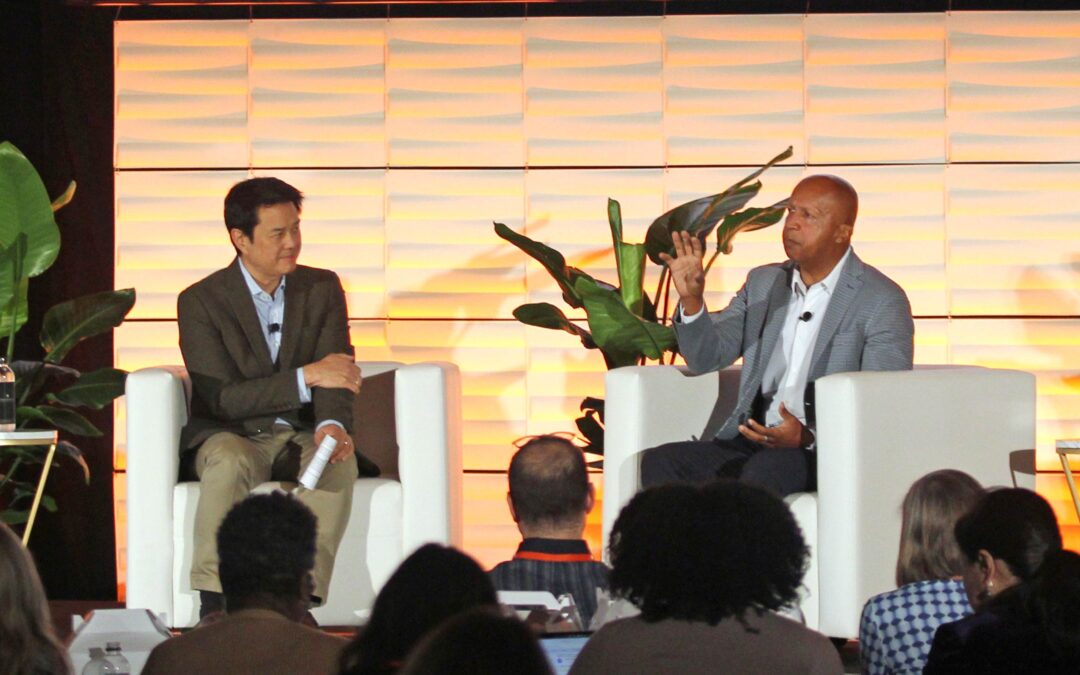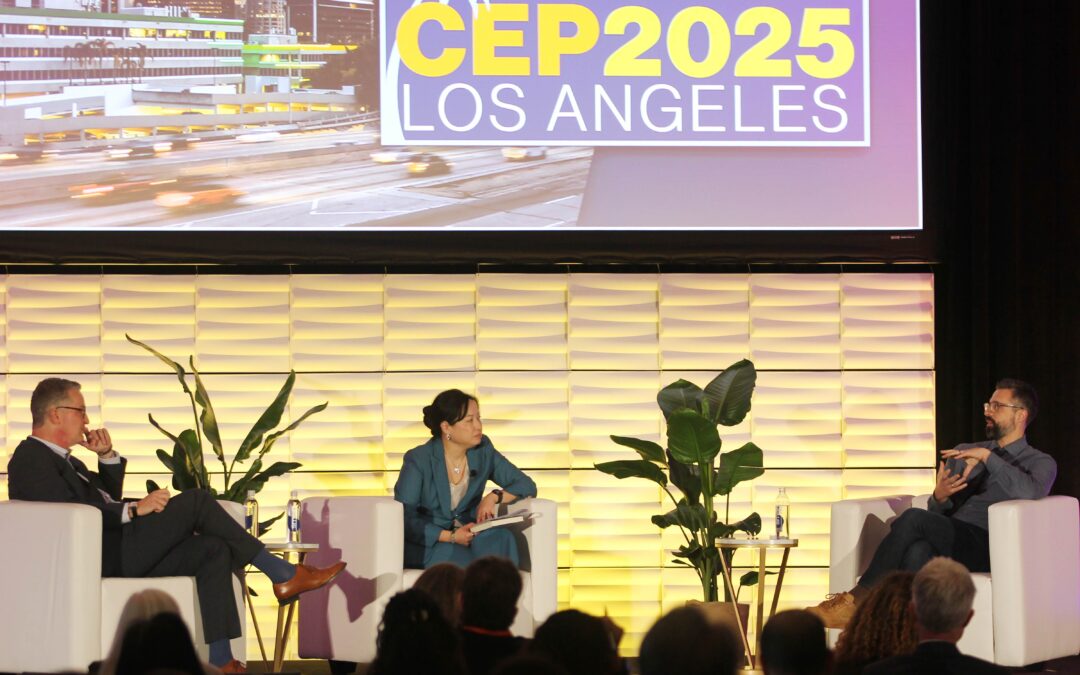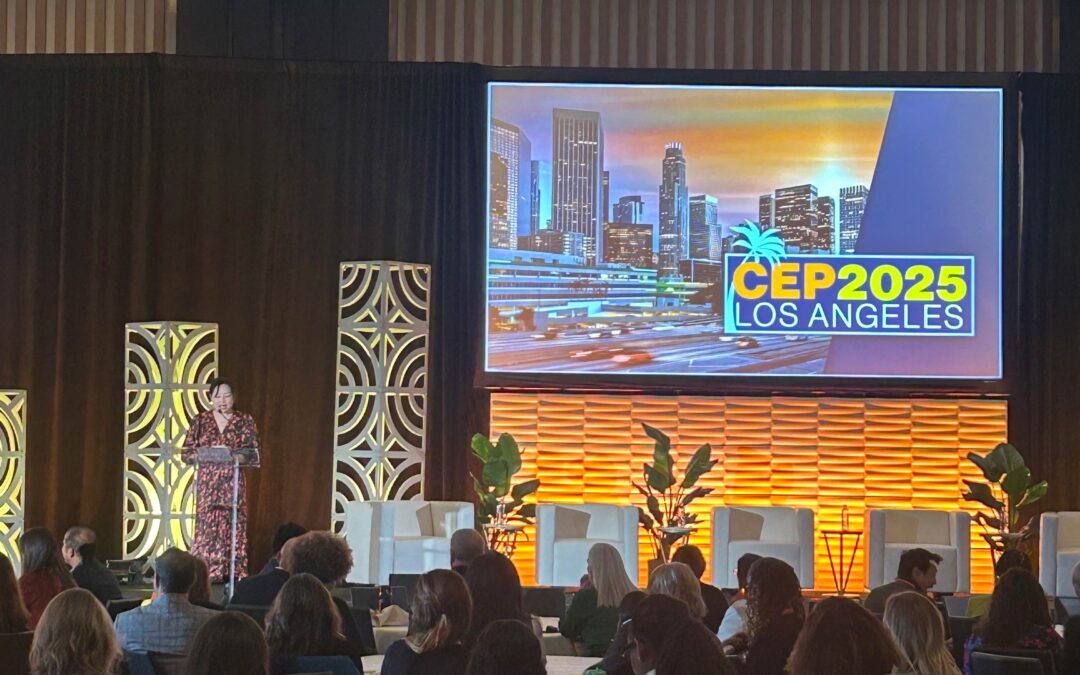Today marked the opening day of CEP’s first conference in four years, and what a joy it was to welcome so many of you to CEP2023.
This afternoon, attendees heard the debut presentation of CEP’s latest, not-yet-released research on the impact of MacKenzie Scott’s giving, followed by a moving discussion about the implications of the research for both nonprofits and funders. Then, after dinner, we were collectively spellbound by a conversation between Mariko Silver of the Henry Luce Foundation and U.S. National Poet Laureate Ada Limón, who also shared readings of her poetry.
I’ll share more on each of those sessions shortly.
First, to rewind, this morning we were delighted to host dozens of grantmakers at a pre-conference session for CEP clients past and present. With members of the Assessment and Advisory Services team leading the way, this was a hands-on, practical session on turning data into action.
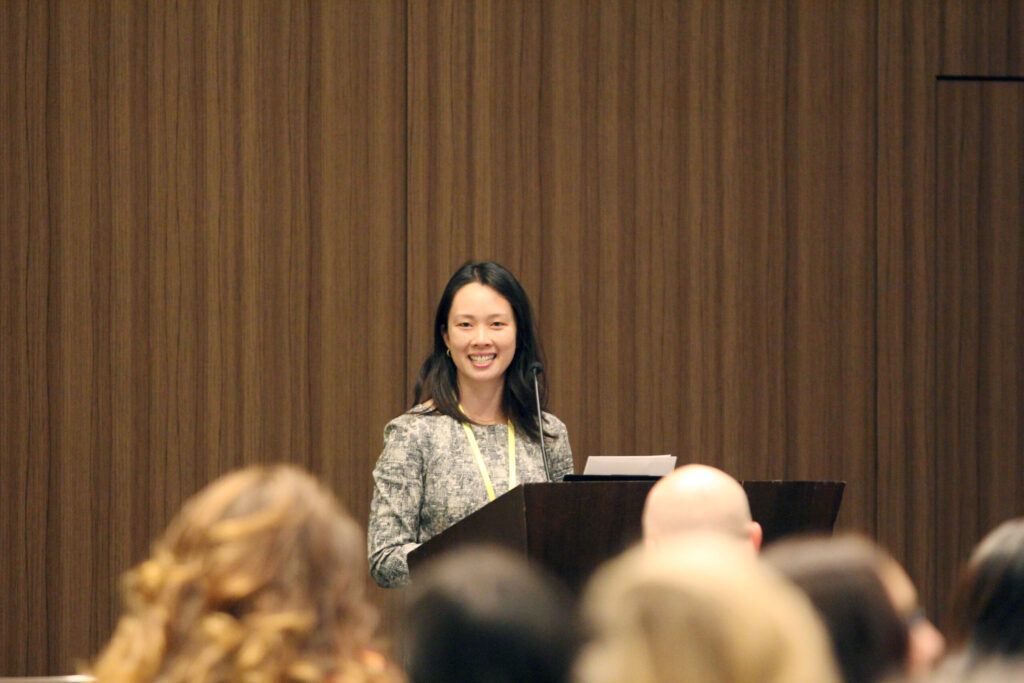
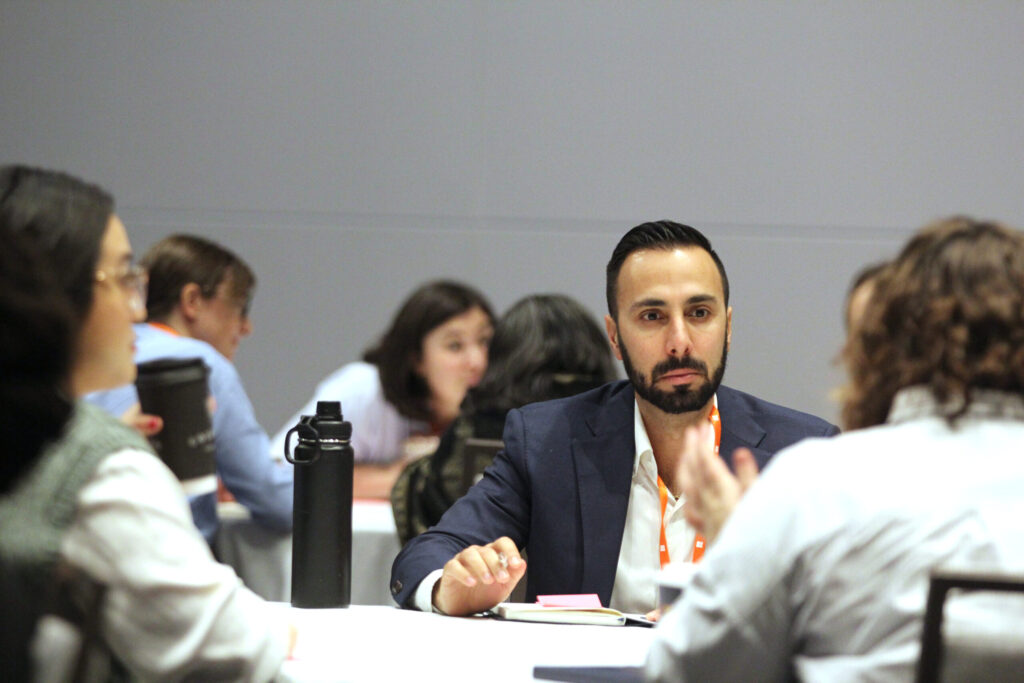
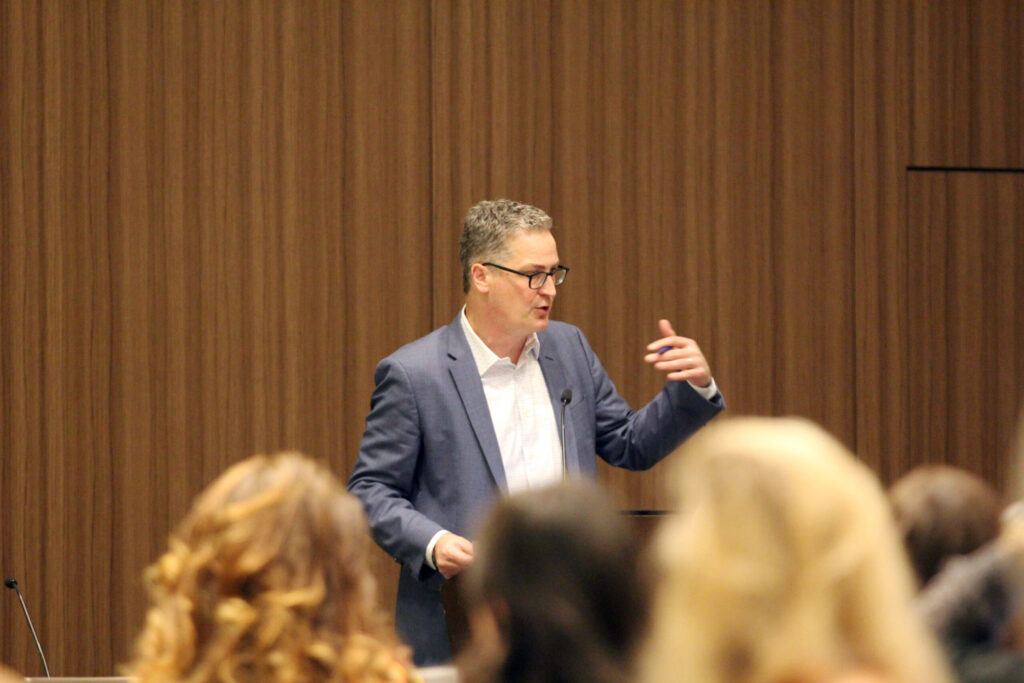
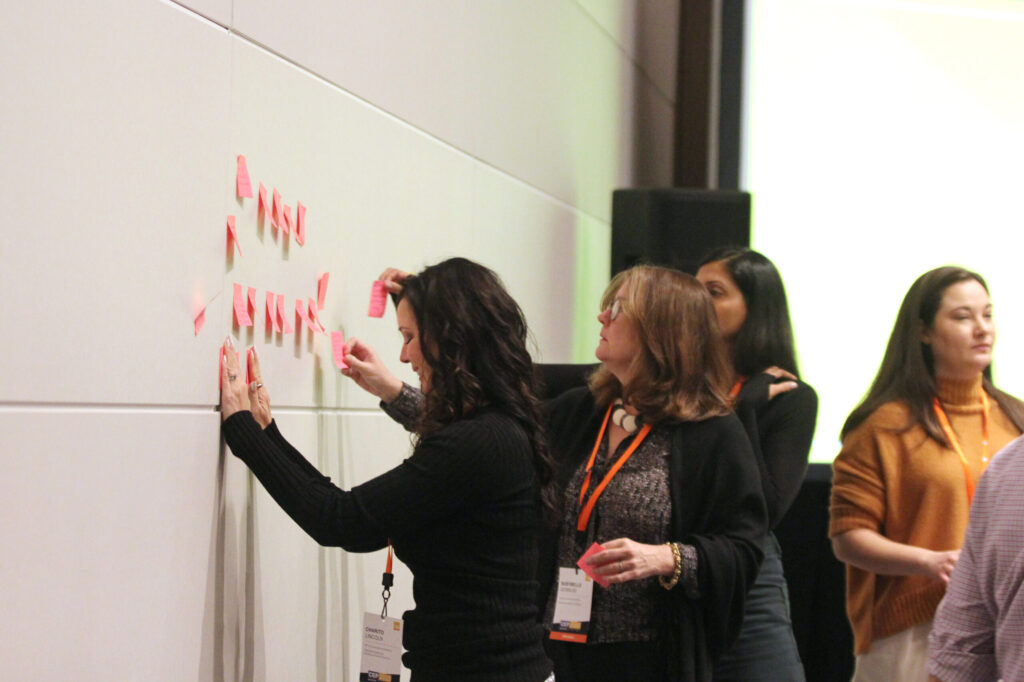
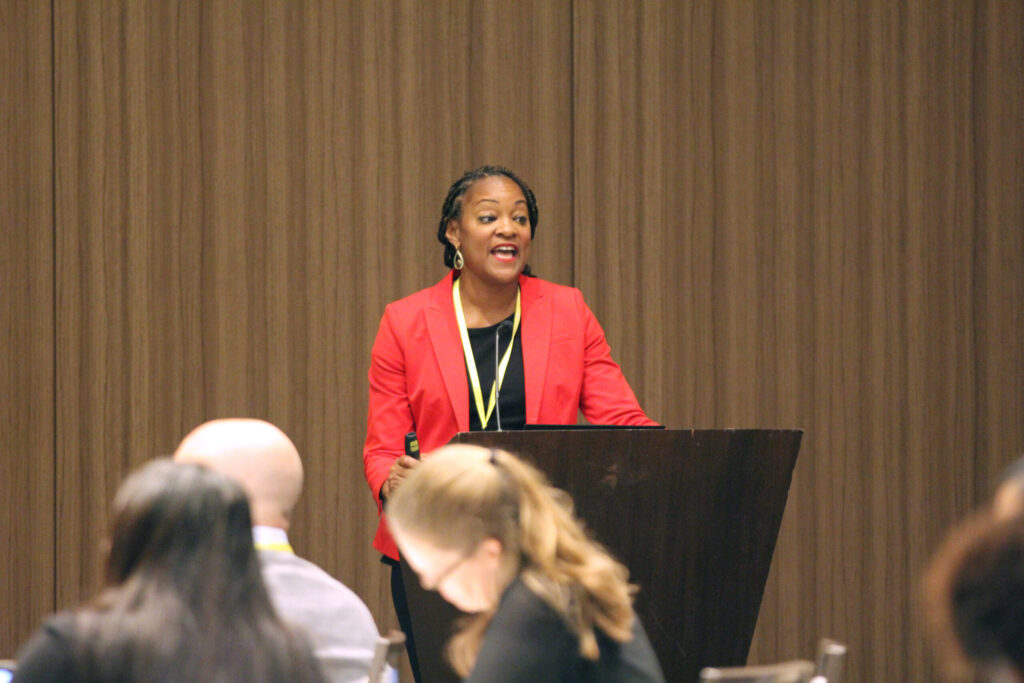

“The most interesting natural experiment in contemporary philanthropy”
As more and more attendees joined us throughout the afternoon, things kicked off on the main stage with a welcome and intention-setting opening remarks from Alex McCray of Philanthropy Massachusetts, who reminded each of us to remember our “why.”
Phil Buchanan, president of CEP, then set the stage for an opening plenary on new CEP research, recalling CEP’s last gathering in Minneapolis in 2019, where “we were deep in the examination of the critique of philanthropy as some kind of ruse to prop up a rigged system.” He noted how, not long after that gathering, and amid all of the discussion of how philanthropy could change, a new player entered the scene: MacKenzie Scott. Her giving represented “maybe the most interesting natural experiment in contemporary philanthropy.”
With that, Elisha Smith Arrillaga, vice president of research at CEP, shared the key findings and data from CEP’s latest, not-yet-published research on Scott’s giving (look for the new report out on Giving Tuesday, Nov. 28, followed by a webinar on Nov. 30).
Smith Arrillaga shared, in concluding her presentation of the research, that the data collected in the last two years of CEP’s ongoing study indicates that Scott’s gifts have continued to have profound effects on their nonprofit recipients — and that many of the fears that funders expressed about the negative effects of these gifts have not come to pass.
Following the presentation, moderator and CEP Board Chair Tiffany Cooper Gueye brought panelists Lysa Ratliff, CEO of KABOOM!, and Jamie Allison, executive director of the Walter & Elise Haas Fund, into the conversation. Ratliff offered personal insights into what the Scott gift meant, both practically and symbolically, for her organization as well as for her as a leader of color. Allison shared how the Haas Fund has undergone a self-examination and transformation in recent years that has resulted in a radical change to their grantmaking and the launch of the Endeavor Fund, moving from relatively small, one-year grants to large, multiyear grants in order to be the best partner to their grantees.
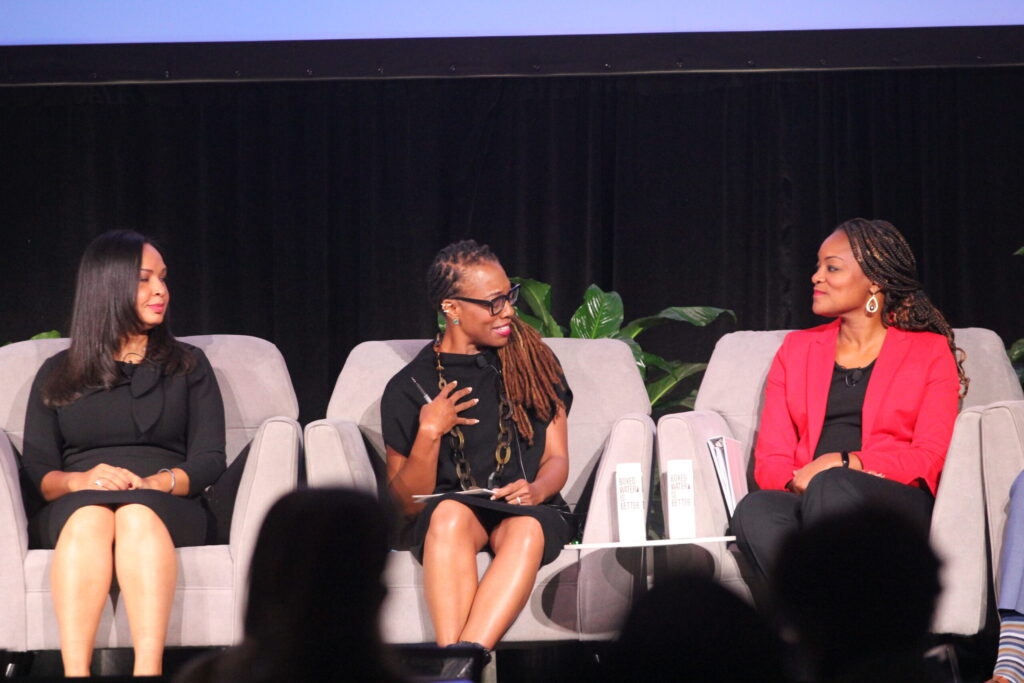

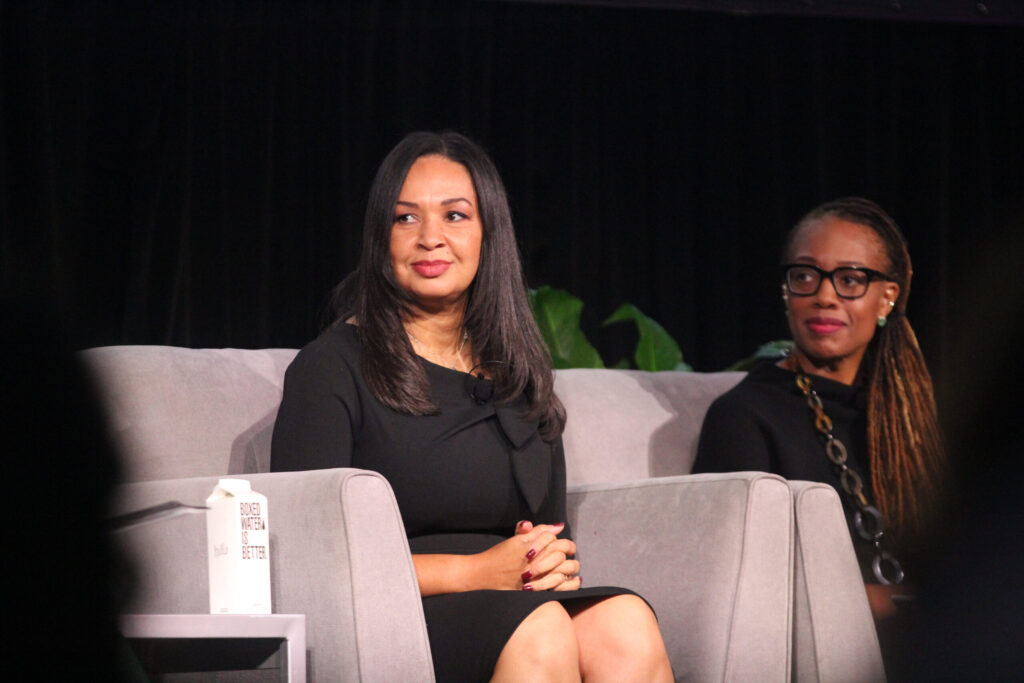
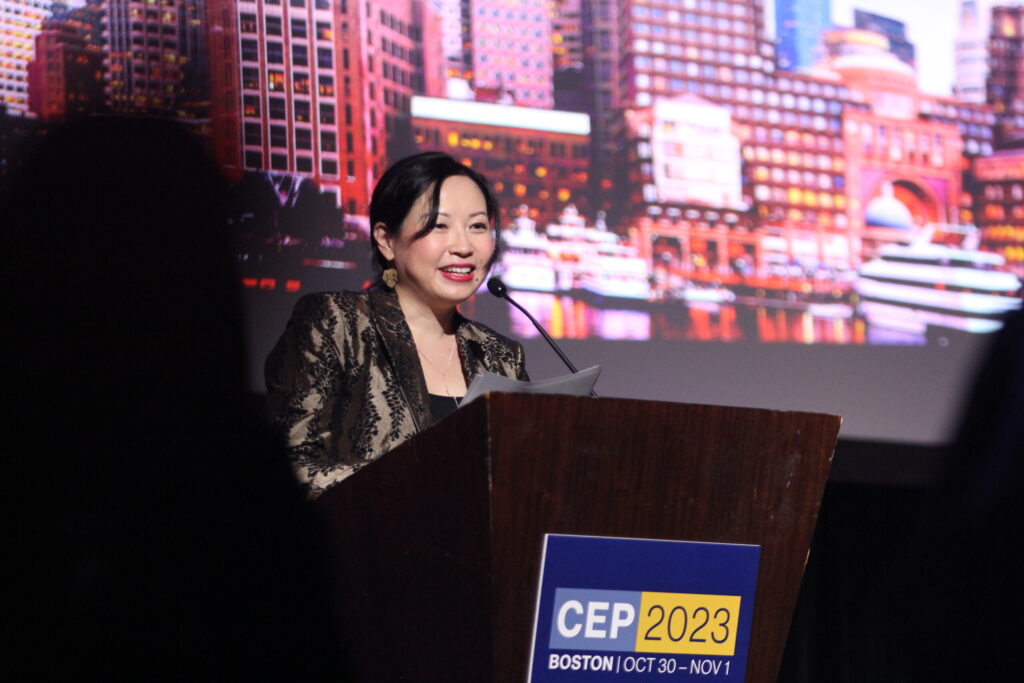
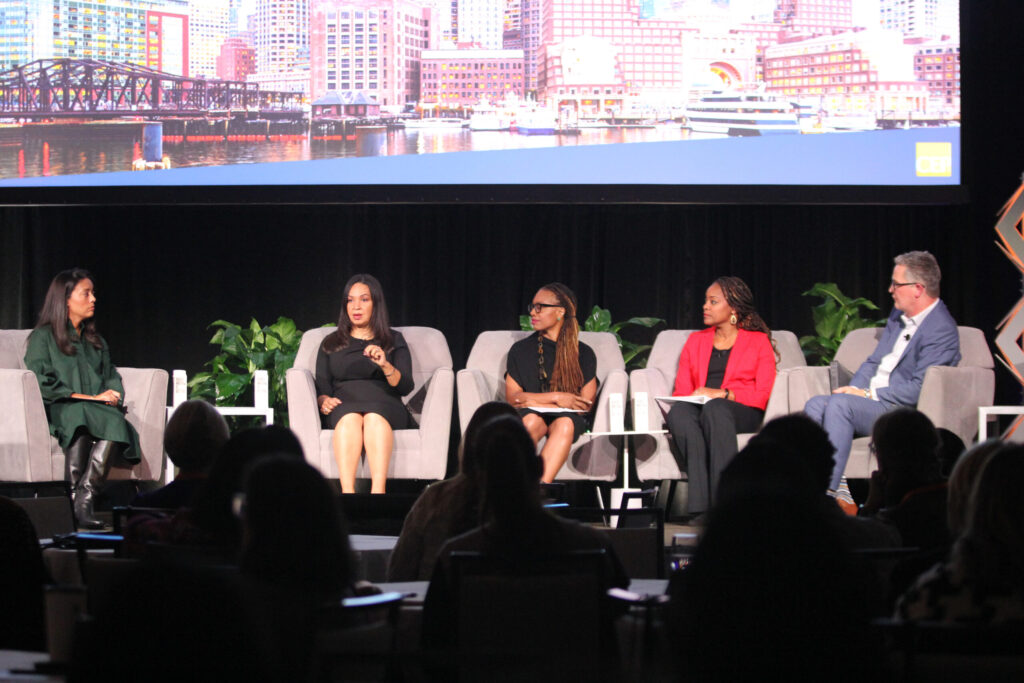
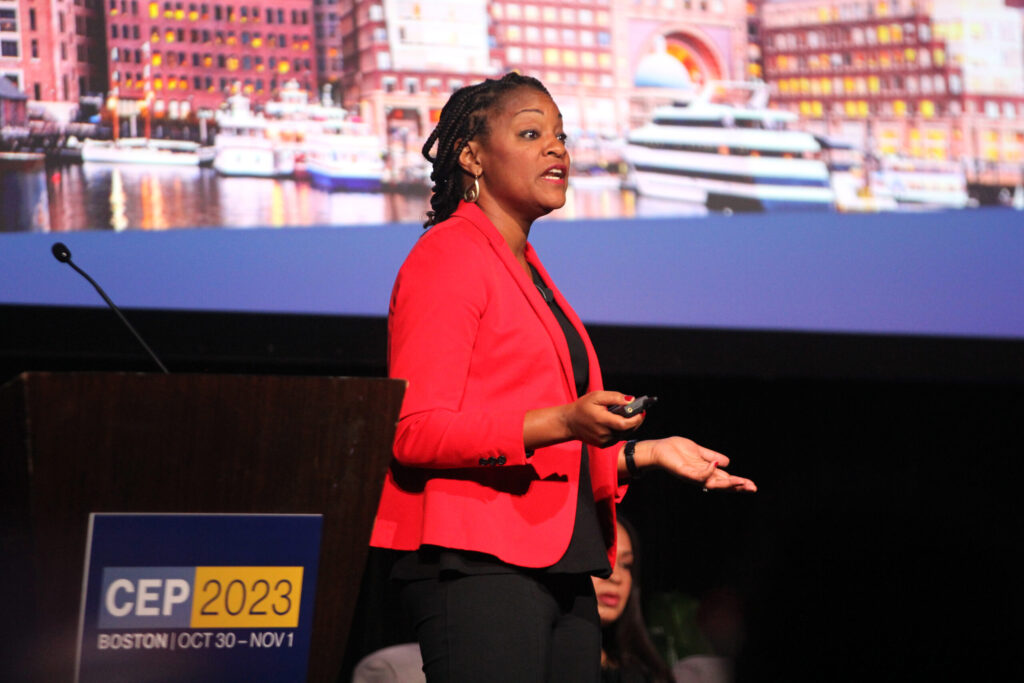
“Poetry is asking you to feel.”
With no time wasted before going deep into the practice and potential of effective philanthropy on day one of CEP’s conference, attendees returned from a dinner reception to listen in to a conversation between Mariko Silver, president and CEO of the Henry Luce Foundation, and U.S. National Poet Laureate Ada Limón.
By way of introduction, Silver asked Limón to share her poem, Calling Things What They Are, before the two transitioned into a profound and soul-searching discussion of the power of poetry to create and allow vulnerability in each of us.
Between additional poetry readings, Limón also noted the opportunity poetry offers us of “not knowing,” and the value of that in contrast to professional settings where there is a need to know the answers — or at least to know how to get there. “Poetry is asking you to feel,” stated Limón, noting the importance of finding moments to be present, to mourn, and to daydream.
Finally, asked by an attendee what poetry can offer when it comes to addressing the pressing problems of the world today, Limón extolled the need to make room for grief and for healing before moving to solutions: “Poetry allows us to sit with it — the mess of it.”
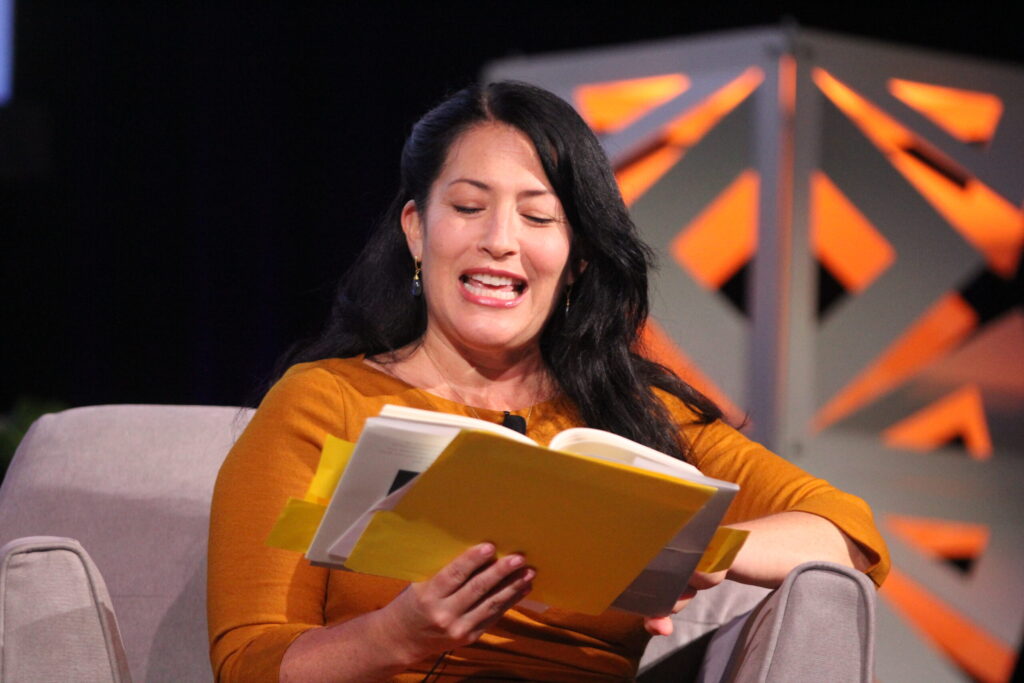
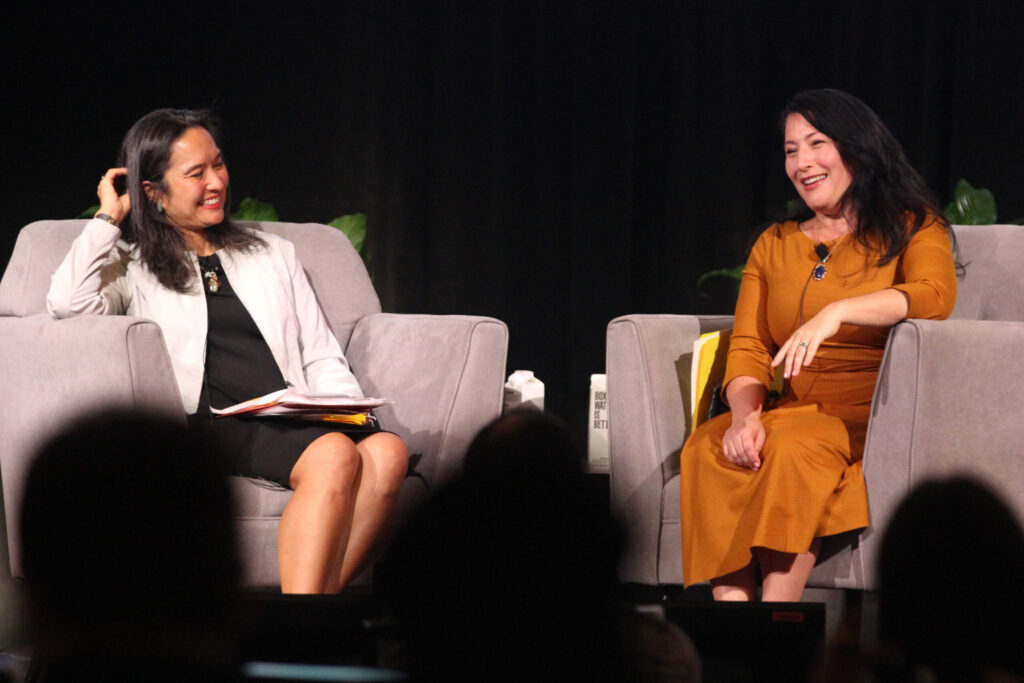
We’re so grateful for the thoughtful participation and engagement of those of you here with us in Boston! If you’re joining us from afar, look out for more updates tomorrow on LinkedIn, Instagram, and Twitter; follow the conversation with #CEP2023; and, of course, check back here tomorrow with another update!
Chloe Heskett is editor and writer at CEP. Find her on LinkedIn.
